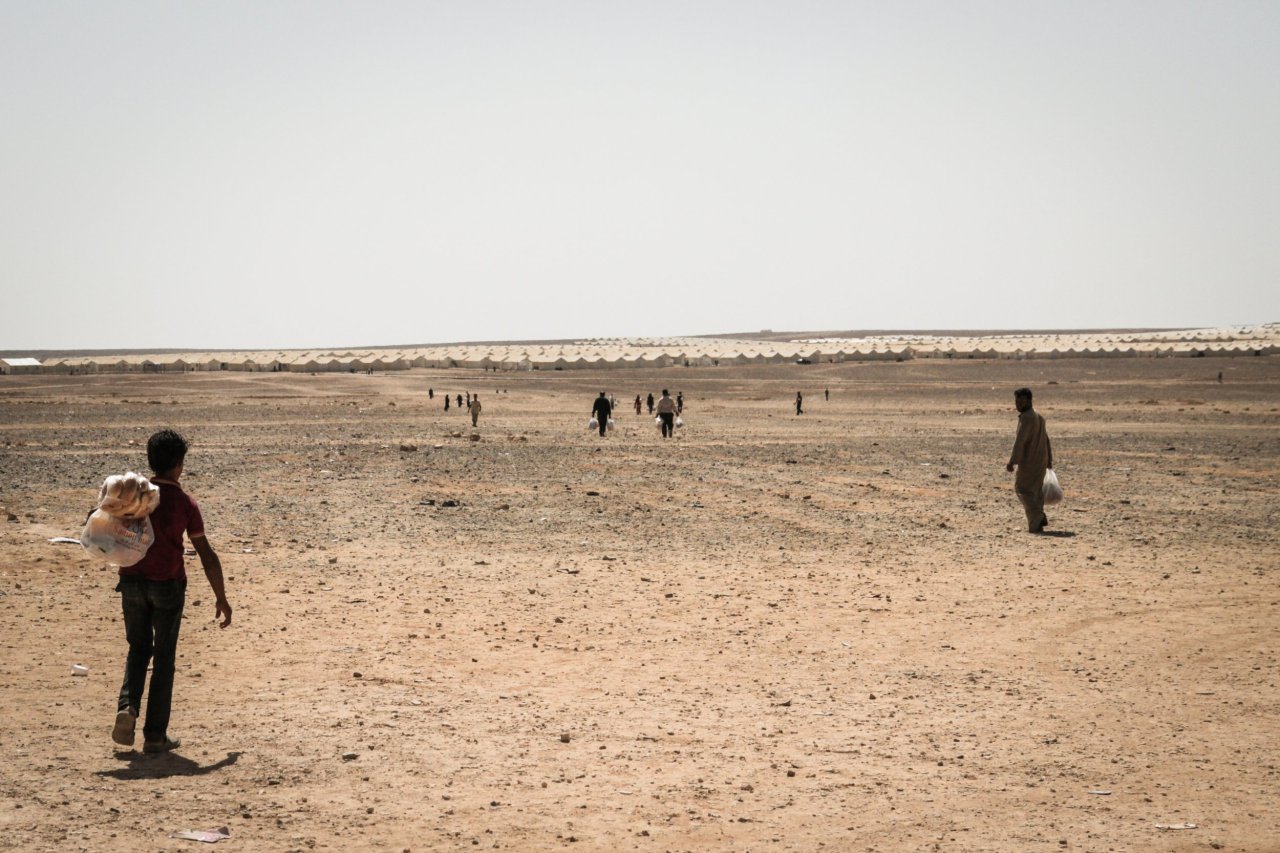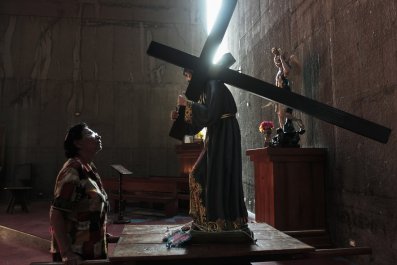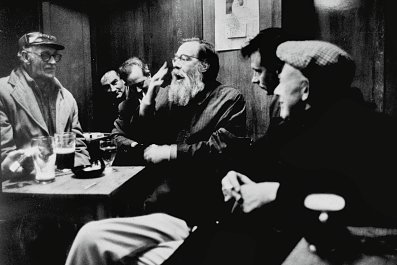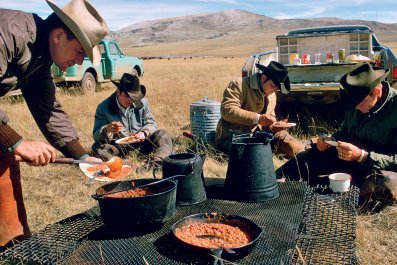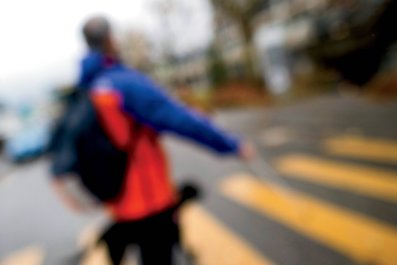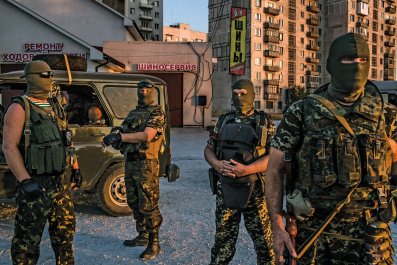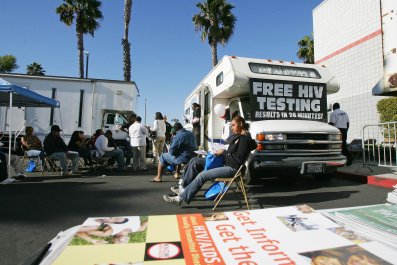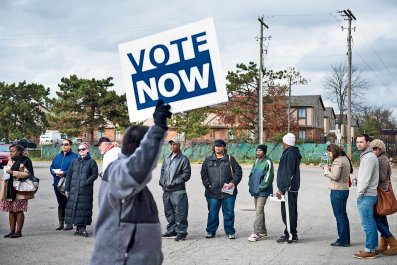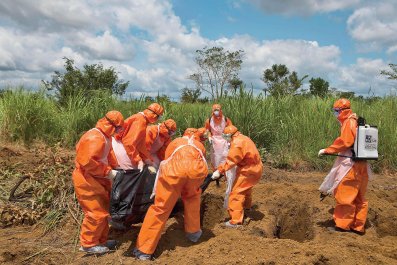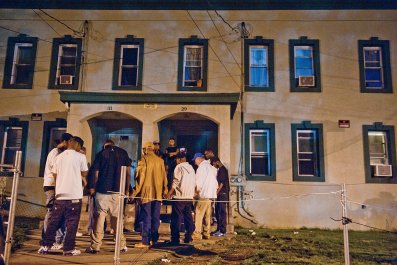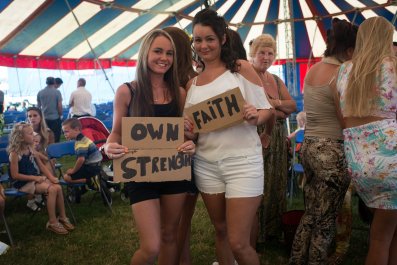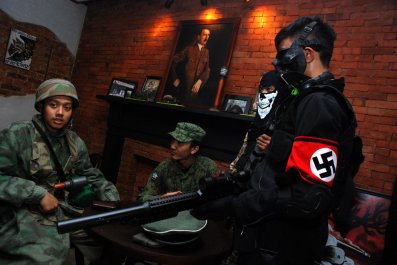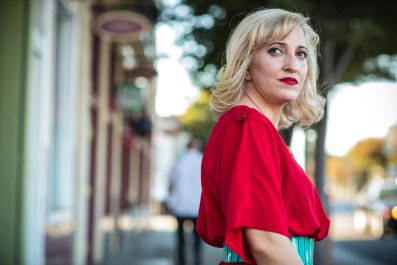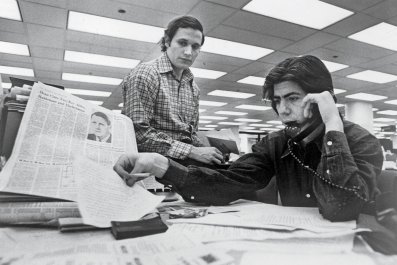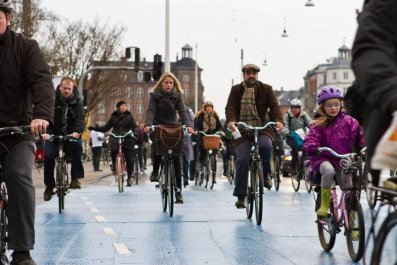Just 10km northeast of Jordan's Mafraq city, some 20 tents are pitched next to a plot of agricultural land, the conspicuous greenery breaking up the otherwise flat, sun-bleached desert. In a faded blue font on the side of some of the tents are the words "UNHCR: The UN Refugee Agency".
This small plot of land in the desert is the latest settling ground for Ahmad Al-Obeyd and more than 100 members of his extended family, all refugees from the same rural Damascus suburb. For almost a year, Ahmad has been moving his caravan of tents around Jordan, following agricultural harvests in the hope of finding work. For the past five months, they have been based near Mafraq, on a dusty plot just two kilometres from the very country they once fled.
Al-Obeyd and his family all arrived in Jordan between December 2013 and March 2014. Carrying whatever they could, some paid smugglers while others hitchhiked through dangerous territory, before finally walking the last few kilometres across the border. His family were registered in Za'atari camp. "It was very, very tough," said Al-Obeyd, "I don't like to think about that journey, but thank God we made it."
Now, thanks to a recent change in Jordanian Government policy, Al-Obeyd and tens of thousands like him live under threat of eviction, incarceration and even deportation back to Syria.
Since the start of the Syrian conflict in the early spring of 2011, some 608,000 Syrians have crossed the border, seeking asylum and refuge in Jordan. A recent economic study by the World Food Programme stated that the sheer number of Syrians coming in had "triggered major demographic shifts; tested infrastructure and pressured social services". Today, Syrian refugees make up one tenth of the Jordanian population. As a result, public opinion has slowly turned on the refugees, and in a speech to parliament in November 2013, King Abdullah II stated that unless the international community quickly came to Jordan's aid, he would "take measures to protect the interests of our people and country".
The residents of Mafraq, for example, are keen to keep Syrians away from their communities – a September 2012 poll by the Jordanian Centre for Strategic Studies found that 80% of townspeople supported the idea of segregation of refugees inside refugee camps.
Then, in July of this year, the government and its new Syrian Refugees Directorate (Srad), implemented a new policy. According to the latest rules unregistered refugees, and those who choose to leave the confines of the camps without official authorisation, find themselves cut off from any humanitarian assistance, and at risk of being deportated to Syria. The choice presented to these refugees is simple: stay in the camps, or give up access to aid.
The reality is more complicated: nearly 100,000 refugees currently live in one of Jordan's two refugee camps, created in response to the Syrian conflict – around 85,000 in Za'atari camp and an estimated 12,000 in the Azraq camp, which opened in April this year. The rest – the vast majority – live outside the camps; having registered with the UNHCR in urban areas, not registered at all, or having simply left without authorisation.
"If you're not going through the bail-out procedure, UNHCR is no longer in a position to renew your documents and to officially recognise your stay outside the camps," says Bernadette Castel-Hollingsworth, UNHCR's head of Azraq camp's field office. As partners of Srad, few aid agency workers are willing openly to decry the new policy for risk of a government backlash that could seriously hinder their efforts with refugees. Nevertheless, many quietly worry that the policy signifies a hardline shift from the government, presaging a more coercive, restrictive future for refugees without the right papers.
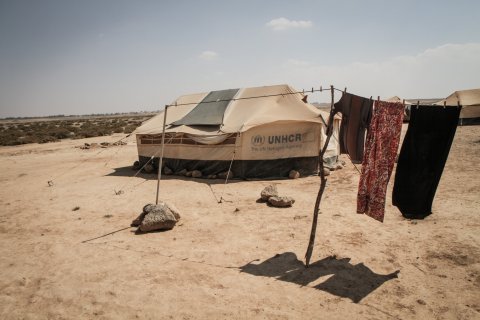
In order for someone to obtain a bailout from Za'atari or Azraq today, Syrians need a Jordanian relative – "not necessarily a blood relation, but there has to be a justified relation" – who can vouch for them and is willing to act as their guarantor while they try and start a new life outside the camp. Catel-Hollingworth acknowledges that obtaining a bailout permit is incredibly difficult: "It is very restrictive in terms of the criteria you need to meet, in order to be able to apply, and then to actually get the permit," she adds.
At the other end of Azraq, sitting in the shade of his corrugated metal shelter, Sabra, a 41-year-old Syrian refugee from Aleppo, describes his first stay at the camp: "I arrived in Jordan and came to this camp on May 2nd," he says. "I escaped the camp on May 28th."
It took just two and a half months before police in Amman stopped and questioned him, and, with only Azraq registration papers, he was quickly returned to the camp. Sabra's story resonates with many like him: "I tried [to leave legally], but I couldn't," he says. "I tried to get the bailout, but I don't have any relatives in Jordan or anybody who could be my [guarantor]."
The creation of the Azraq camp was a direct result of the huge number of refugees overwhelming Za'atari in 2012. With a maximum capacity of 60,000, Za'atari quickly swelled to 120,000 just over a year after opening. Refugees soon streamed out of the camps and entered Jordanian residential areas. Al-Obeyd and his entire family were among them. As was common at the time, they snuck out in the night. "We left slowly, my son-in-law leaving first, then afterwards, in small groups, the rest of us snuck out," Al-Obeyd says.
"At that time in Za'atari, there were 2,000 refugees arriving per day," says Castel-Hollingsworth. "The government and UNHCR realised . . . Za'atari could not cope." In February, the government decided there needed to be another camp. Today, Azraq accepts 96-97% of all new arrivals into the country.
Azraq is unlike almost every other refugee camp in the world. Out of the gently undulating desert in central Jordan, the rugged shelters sit in perfect rows. Today, close to 10,000 shelters have been built, each with a 5-person capacity. At 14.7 square km, the camp itself has the feel of peculiarly sparse, under-construction town. Everywhere is orange desert, grey roads and yellowing shelters.
"People say [it's like planning a city], but yes it is urban planning. Yesterday I was approving the layout for a cemetery," Castel-Hollingsworth says. Lessons have certainly been learned from the chaos of Za'atari, and she is proud of the fact there have been "no security incidents in the camp", a serious issue that continues to plague Za'atari.
Yet there is much to be done. The camp itself has only one supermarket; no electricity save small, solar-powered devices; no field hospital; no floors in the shelters, and unlike Za'atari, practically no business opportunities for the refugees.
Castel-Hollingsworth considers these issues urgent. "People say that if they get electricity, the hospital and the markets, people will come back from the urban areas to live here," she says. Yet, in the mean time, the refugees continue to leave – bailed out or not.
Sabra says that leaving Azraq was a way of restoring his dignity. "There is only so long you can live off [hand outs]. I feel I am living half a life here." It is a sentiment echoed by Al-Obyed: "In order to live in dignity, you have to work," he says. "That's why we prefer to live [outside], even with all the risks involved."
An estimated 13,000 refugees, or around 50% of those registered at Azraq, have already left illegally. Almost all of them will fall foul of the new bailout policy. Al-Obeyd knows his family are at risk by continuing to illegally reside in what are termed "informal tented settlements" (ITS). "When the policy first started, we began hearing of mass evictions of people just like us," says Al-Obeyd. "We were seriously considering moving back to the refugee camps before they had a chance to move us forcefully."
To date, ITS evictions have been fairly piecemeal, but one aid agency worker in Jordan warns that, "it seems to be accepted by aid workers that [more wide-scale evictions] will inevitably happen".
Al-Obeyd calls the new policy "devastating". Nodding in the direction of his family, he notes: "It is the poorest, the most desperate, who are most affected." He explains that for the Syrian refugees, everyone has lost something, and some have lost everything. "If they evict us, destroy our things and send us back [to the camps] I would ask them to instead return us to Syria." He pauses to consider what he has just said, before nodding, "Yes. That would be kinder."


